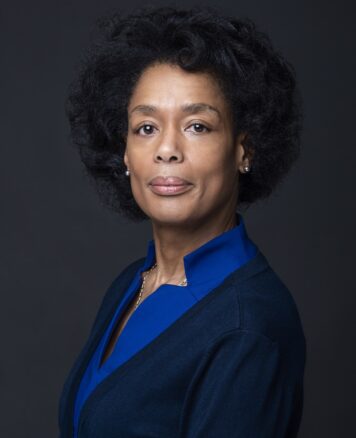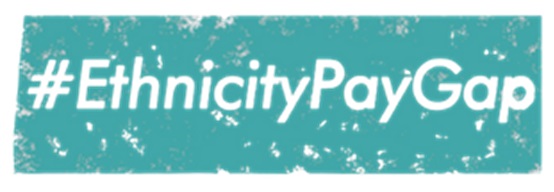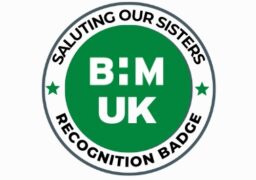
During an interview about the latest release of ‘A Colour Purple’ actress Taraji P. Henson broke down in tears about the disparity of pay for black women. “I’m just tired of working so hard, being gracious at what I do [and] getting paid a fraction of the cost”
A number of other black actresses rallied around Henson to show their support and thanked her for speaking out. However, this isn’t the first time that a black woman in Hollywood has raised this issue.
Back in 2016, during the #SoWhite fiasco of the Oscars, Mo’Nique voiced her concerns and demanded equal pay for black women. Viola Davis has also spoken about this issue with her “pay me Meryl Streep money” quote going viral on social media.
Understanding the ethnicity pay gap
Let’s clear something up first. Equal pay or unequal pay is not the same as a pay gap.
In the same way the gender pay gap highlights the disparity in pay between men and women, the ethnicity pay gap is a measure of the difference between ethnic groups’ average earnings across an organisation or the labour market as a whole, over a period of time, regardless of role or seniority.
The UK’s ethnicity pay gap has persisted over the past decade and according to the statistics produced by the Office for National Statistics, UK born black employees had the biggest pay gap, earning 5.6% less than white employees. Non-UK-born black employees registered the highest pay gap in 2022, earning 12% less than UK-born white workers.
Is there an legal obligation for organisations to report pay gaps?
While gender pay gap reporting is mandatory for any employer with 250 or more employees on the ‘snapshot date’, no such compulsion exists for ethnicity pay gap reporting. Instead, organisations can voluntarily report their ethnicity pay gap. The reason cited by the government for its decision not to make ethnicity pay gap reporting mandatory is the “genuine difficulties in designing a methodology that produces accurate figures that allow for interpretation”
Analysis of data from BITC*1 found that unless the government makes ethnicity pay gap reporting mandatory, it will take 30 years (2051) for businesses to even know what their pay gap is.
Dr Shabna Begum, the interim co-CEO of the Runnymede Trust, said the fact that the ethnicity pay gap persisted was “absolutely shameful” and “Based on current progress, it will take decades for these gaps to close, even if white British men’s pay were to remain the same,” she said.
Closing the gap

This is reason why Dianne Greyson founded the ‘Ethnicity Pay Gap Day’ which takes place on 8th January each year*2. Its main aim and purpose is to raise awareness of the issues relating to the Ethnicity Pay Gap and to encourage the government to make Ethnicity Pay Gap reporting mandatory.
“Organisations need to look at not only reporting their Ethnicity Pay Gap but they should also be taking action to close the gap. Reporting their Ethnicity Pay Gap is the first step, action is required to ensure pay gaps do not exist.” Says Greyson
Aggie Mutuma is an anti-racism specialist at Mahogany Inclusion and believes an ethnicity pay gap speaks about the culture of the organisation:

“Addressing the ethnicity pay gap is not simply about remuneration equity. When we observe a disparity in pay linked to ethnicity, it speaks volumes about the underlying values, practices, and priorities within a workplace. It is a tangible indicator that inclusivity and equality are not yet fully woven into the organisational fabric.”
She continues: “By actively working to close this gap, organisations do not only adhere to principles of fairness and justice, but they also set a standard for what a truly inclusive culture looks like. This commitment to equality is a beacon that attracts talent, fosters innovation, and ultimately, contributes to the bottom line.”
In the absence of legal obligation, organisations should consider the moral duty and the possibility of losing out on talent.
What can organisations do?
The Law Society believes that pay gap reporting can demonstrate the organisation’s commitment to anti racism. It will also create visibility, showcasing you are a forward-thinking organisation, highlighting how seriously you take action on diversity and inclusion.
The Society also believes ethnicity pay gap reporting is one of a number of tools that employers can use to ensure that they are being fair in pay, reward and recognition.
It can also help organisations identify where there may be structural issues on how talent from diverse ethnic backgrounds is distributed within the organisation.
Law Firm, CM Murray advise employers to consider how to improve capturing their diversity data (in a sensitive and confidential way), how to analyse and what measures can reasonably be taken to bring about change and equality of opportunity.

What can individuals do?
- Educate yourself: “People should educate themselves on the Ethnicity Pay Gap” says Greyson. “It is evident to me that there is little or no knowledge amongst our community about this issue. Do not assume you are being paid fairly because you might be surprised at what you find out” She encourages anyone wanting more information to sign up to the Ethnicity Pay Gap Summit on 9th February 2024* 3
- Employee networks/resource groups – Does your organisation have a network for black staff? Are they discussing this? How can the network act as an internal stakeholder on pay gap reporting?
- Do your research – Use websites like Glassdoor or Payscale to help you find salary ranges for positions similar to yours at various companies.
- Knowledge is power – Engage with external trusted networks in the sector to have those open discussions on pay and strategies to negotiate.

Dianne Greyson and Aggie Mutuma receive the ‘Saluting Our Sisters’ badge for their pioneering work on closing the ethnicity pay gap
________________________________________________________________________________________________
*1- 2021 Race at Work survey
*2- This is not to be confused with the international equal pay day on 18th September or the Fawcett
Society’s national equal pay day
*3 -Ethnicity Pay Gap Summit – register at https://www.eventcreate.com/e/epgsummit24
